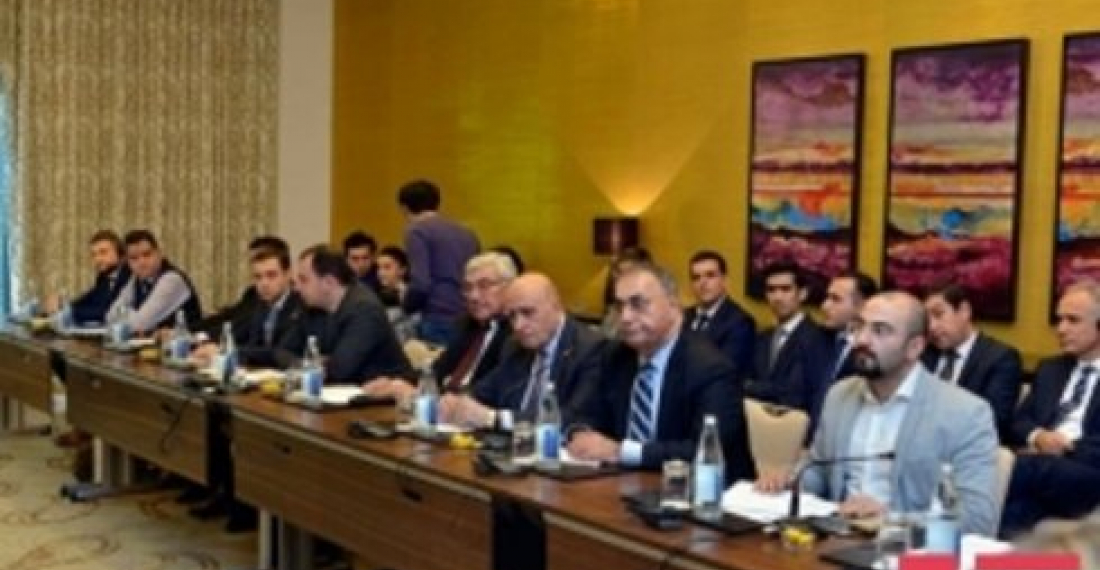В понедельник, 6 ноября, участники круглого стола, состоявшегося в Баку, обсудили роль мер укрепления доверия (МД) в поддержку продолжающегося международного посредничества за мирное урегулирование нагорно-карабахского конфликта.
В мероприятии, организованном Центром социально-экономического развития (CESD) и LINKS (Диалог, анализ и исследования), приняли участие члены парламента Азербайджана, представители политического и гражданского общества Азербайджана, представители ВПЛ, ученые, а также послы и высокопоставленные дипломаты, аккредитованные в Азербайджане.
Представляя это тему, директор LINKS, Деннис Саммут, рассказал участникам мероприятия о недавно созданной рабочей группе, в состав которой входят армянские и азербайджанские эксперты, и которая трудится над разработкой идей МД, которые могут способствовать урегулированию карабахского конфликта. Докладчик объяснил, как МД работали в других контекстах со времен «холодной войны» и как они могут помочь поддержать мир в Нагорном Карабахе. Деннис Саммут призвал лидеров политического и гражданского общества Азербайджана принять участие в этом процессе, поскольку он является важным компонентом для достижения мира в регионе. Он рассказал о той "высокой цене", которую приходится платить странам и обществам региона из-за карабахского конфликта. В частности, он отметил то, как приходится перемещенным в результате конфликта лицам, а также тем, кто продолжает жить в регионе конфликта по обе стороны от линии соприкосновения. Он призвал ко всестороннему взаимодействию с участием всех заинтересованных сторон в этом процессе.
Многие участники мероприятия также выступили со словом, касательно путей решения этой проблемы. Были высказаны различные взгляды об эффективности МД. Некоторые участники подчеркнули негативную роль России в регионе. Многие участники внесли практические предложения о мерах, которые могут быть реализованы, в том числе путем развития регионального сотрудничества, посредством инициатив гражданского общества и прямых контактов между армянской и азербайджанской общинами Нагорного Карабаха.
Завершая встречу, Деннис Саммут, поблагодарил участников за их активное участие и их предложения. Он сказал, что все идеи будут изучены рабочей группой, которая недавно была создана LINKS в рамках партнерства EPNK - инициативы Европейского Союза в поддержку мирного урегулирования нагорно-карабахского конфликта.
Мероприятие проходило под председательством д-ра Вугара Байрамова, председателя CESD.
Подобная встреча была организована в Ереване 16 октября. Подробнее читайте здесь
Читать также: Карабахский конфликт: первое заседание рабочей группы по мерам укрепления доверия в Брюсселе
источник: commonspace.eu
фото: Члены парламента Азербайджана, лидеры политического и гражданского общества и представители азербайджанской общины Нагорного Карабаха в ходе круглого стола по вопросу о роли мер доверия в контексте нагорно-карабахского конфликта, состоявшегося в Баку, 6 Ноябрь 2017 года (фото предоставлено информационным агентством AПА, Баку)






